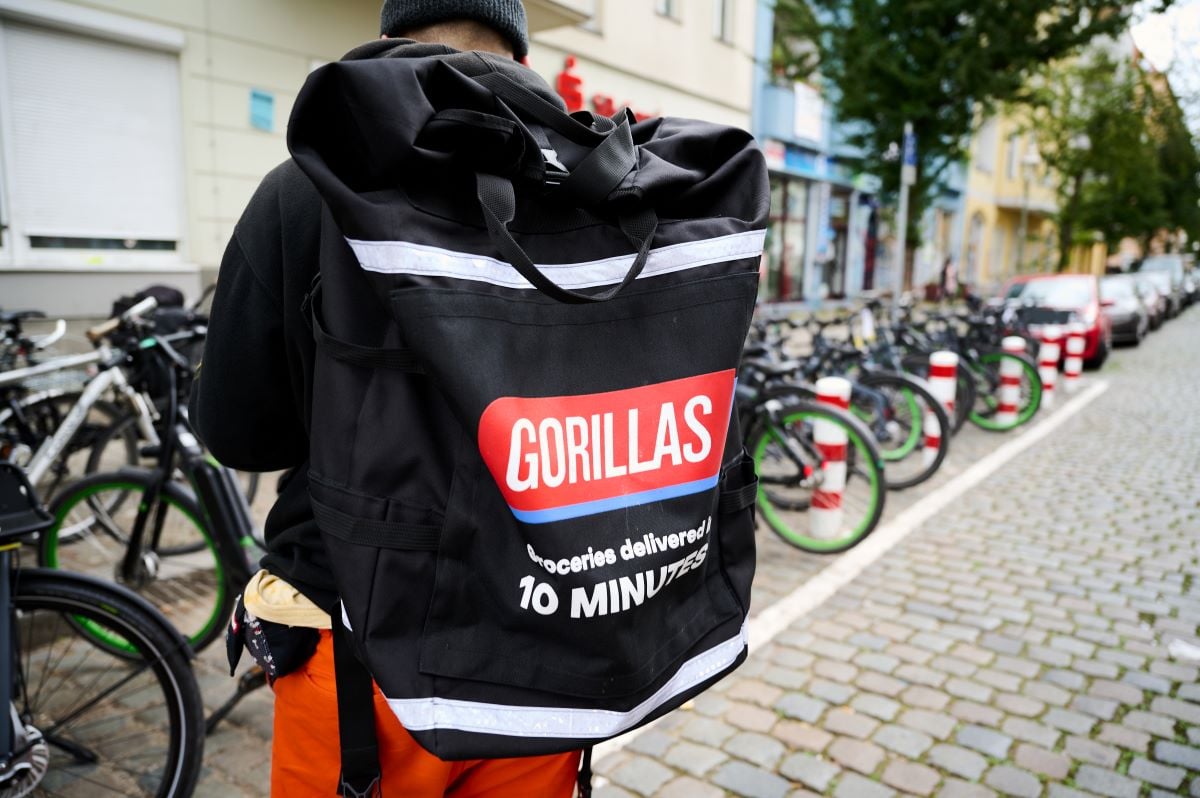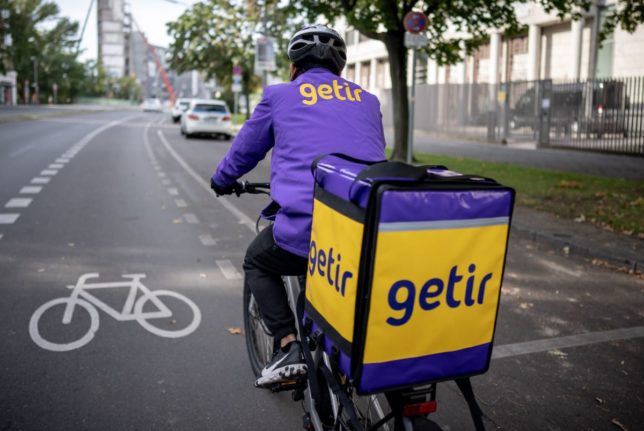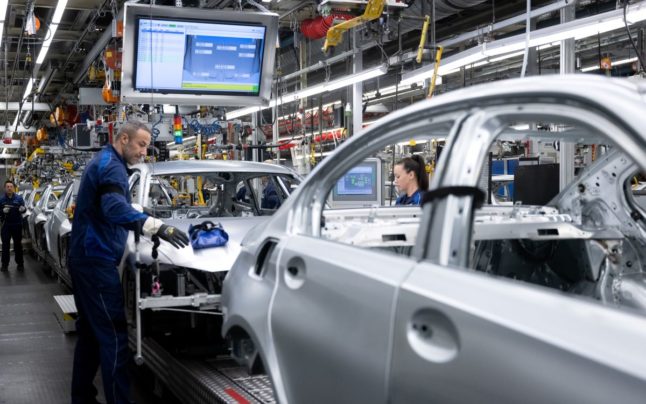Speedy delivery start-ups Getir and Gorillas will leave Germany by mid-May.
After the 15th, customers will no longer be able to order groceries via the Getir or Gorillas apps, and delivery couriers in Getir’s branded purple suits, or Gorilla’s black jackets, will no longer be seen making dizzying laps on Germany’s urban streets.
Getir’s remaining warehouses will be closed down over the next couple weeks. According to WirtschaftsWoche, 1,800 Getir employees in Germany have already received termination notices.
The Gorillas app has continued to serve customers but is owned entirely by Getir, meaning that grocery delivery by Gorillas will also cease in Germany this month.
Why are grocery delivery apps failing?
The speedy grocery sector, sometimes called quick commerce (Q-commerce), grew immensely in recent years. But none of the fast grocery delivery start-ups have managed to turn a profit.
They have instead been fuelled by large sums of investor money, which was easy to grab when customer numbers rose through the Covid pandemic.
Turkey-based Getir was founded in 2015 and began rapidly expanding in Europe six years later. At its peak, it had a valuation of $12 billion (€11.2 billion).
Meanwhile, Berlin-based Gorillas was founded in 2020, and expanded rapidly across the capital city, subsequently rolling out across Germany and the EU and even entering the US.
Shortly after Gorillas came Flink: yet another Berlin-based grocery delivery start-up, but in pink. Both Gorillas and Flink succeeded in achieving unicorn status, meaning that they grew to a $1 billion valuation within their first year of business.
However, Gorillas’ shining success was short-lived. From early on, the start-up faced criticism from workers who complained about physically hazardous working conditions, faulty gear, and stressful performance demands.
Meanwhile the company was rapidly burning through investment capital in its efforts to expand into new markets and coax in new customers with hefty discounts.
READ ALSO: German discount supermarket Aldi Süd launches delivery service
Getir bought Gorillas at the end of 2022, despite signs that Gorillas was crashing at the time.
One year later, the writing was on the wall for Getir as it began winding down operations in France, Italy, Spain and Portugal. In August of 2023, Getir announced that it was laying off 2,500 workers, equal to about 11 percent of its staff at the time.
According to British broadcaster Sky, shareholders have agreed to give further funding to Getir on the condition that the company withdraw from the UK, Germany and the Netherlands to instead focus on expansion in its home market in Turkey.
With Getir and Gorillas out of the way, Flink has secured its position as Germany’s market leader. According to Flink, its annual turnover is twice as much as Getir’s, at €560 million.
But even as the clear market leader, whether or not Flink can succeed in making rapid delivery profitable remains to be seen.
The company reportedly secured a further €100 million to extend its runway in Germany for the time being.
Betting on speed was a fatal miscalculation
Those who lived in Germany’s bigger cities in 2020 or 2021 may recall a period when delivery apps like Gorillas, Flink and others were dominating advertisement spaces on the streets and in U-bahn stations.
Gorillas infamously promoted deliveries in “ten minutes” on its billboards, and even on the backpacks and jackets that its riders wore.

Eventually the brand phased out the ten minute suggestion, presumably because most deliveries took longer than that. But it stuck with speed-focused marketing, turning instead to slogans like “faster than you”.
But market analysts have since determined that the focus on speed was a mistake. Logistically, providing super quick deliveries requires too many warehouse locations and too many employees.
With rents and other costs increasing recently, the weaknesses of the speed-based delivery business model were exposed.
Delivery jobs can be hazardous and exploitative
Delivery start-ups also faced protests and bad press as delivery and warehouse workers complained that they suffered immense stress on the job, and bodily injuries.
Furthermore many delivery companies stood accused of trying to circumvent workers’ protections, traditionally seen as a key pillar of Germany’s social market economy, by hiring most of their workforce as “self-employed” contractors rather than full or part-time employees.
Gorillas, in particular, faced an onslaught of bad press for years as the so-called Gorillas workers’ collective organised countless protests against the company, and dozens of cases of wage-theft were brought in Berlin’s courts.
Even as Gorillas and Getir exit Germany, these issues can be expected to continue.
On Friday, German and Dutch food couriers protested in front of the headquarters of Just Eat Takeaway in Amsterdam. Just Eat Takeaway is the parent company for Lieferando, which has about 7,000 employees in Germany.
In response to these kinds of labour disputes, the EU Parliament recently adopted a Platform Directive aiming to improve the working conditions and rights of platform workers at food delivery companies, including measures to prevent companies from hiring “self-employed” workers.
The EU directive also hopes to provide protections for consumers. Companies with delivery apps will be obliged to provide more transparency about how their algorithms work.
READ ALSO: REVEALED – Where to buy groceries on a Sunday in Berlin



 Please whitelist us to continue reading.
Please whitelist us to continue reading.
Member comments